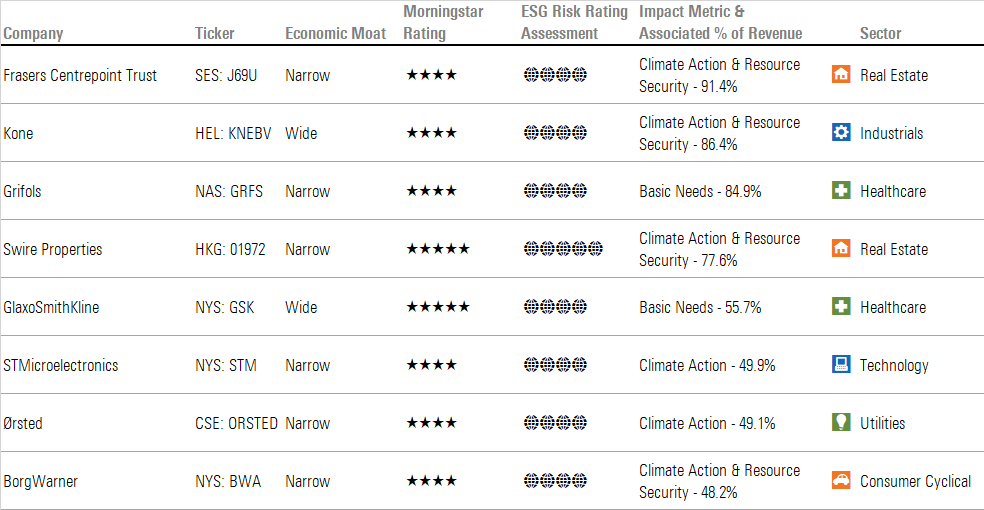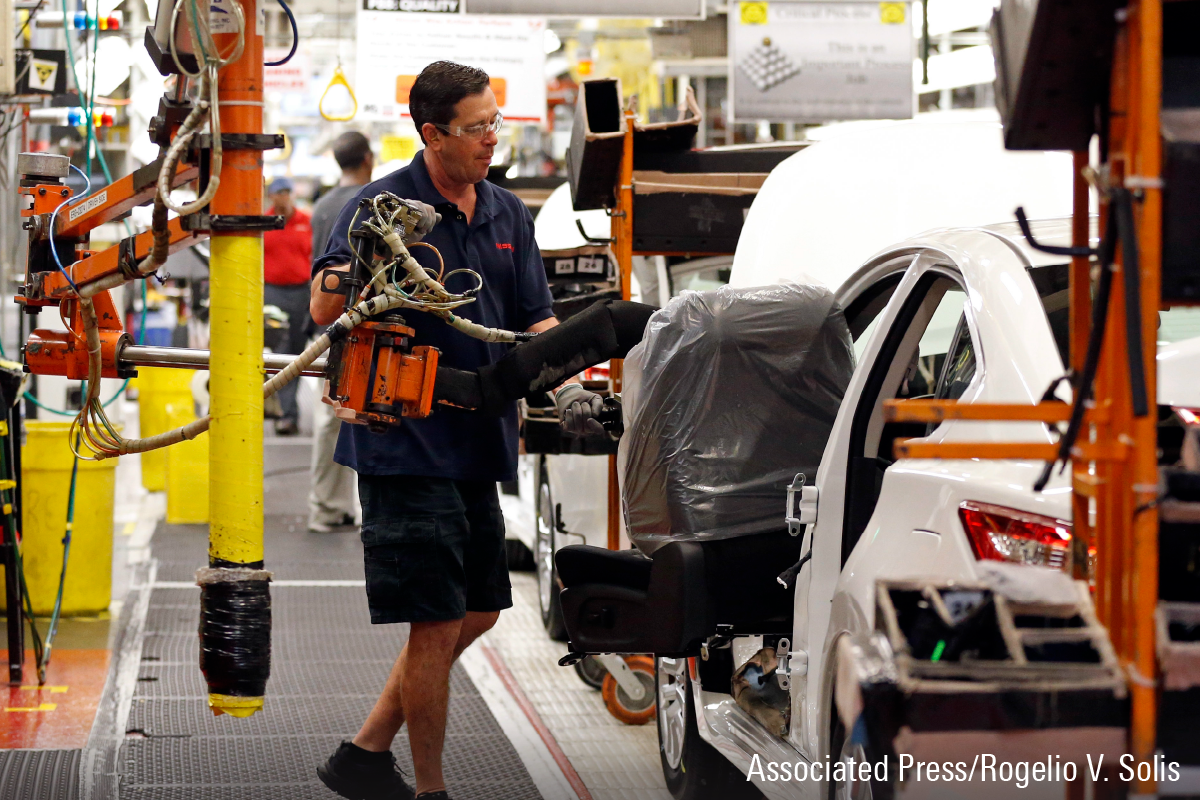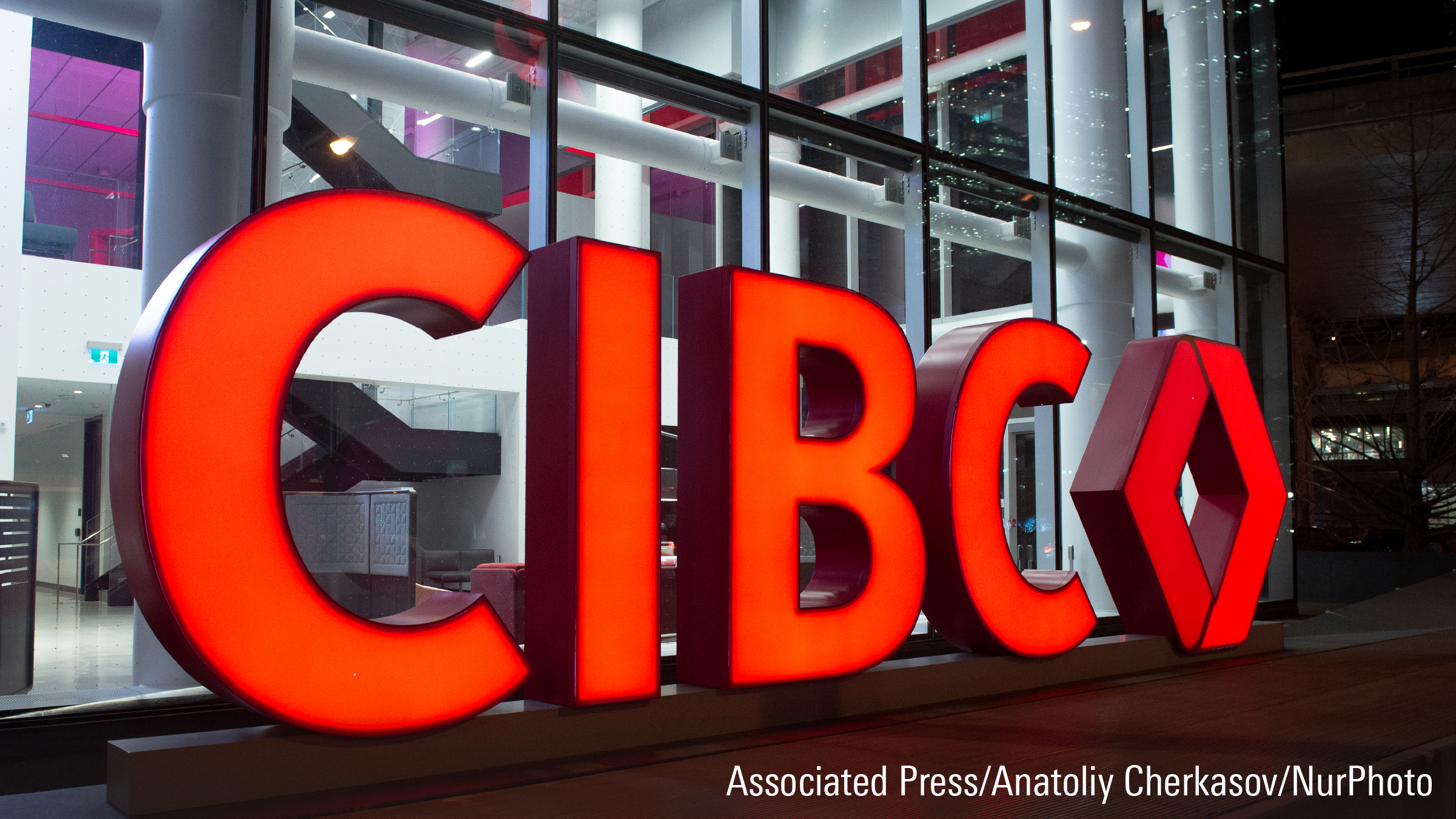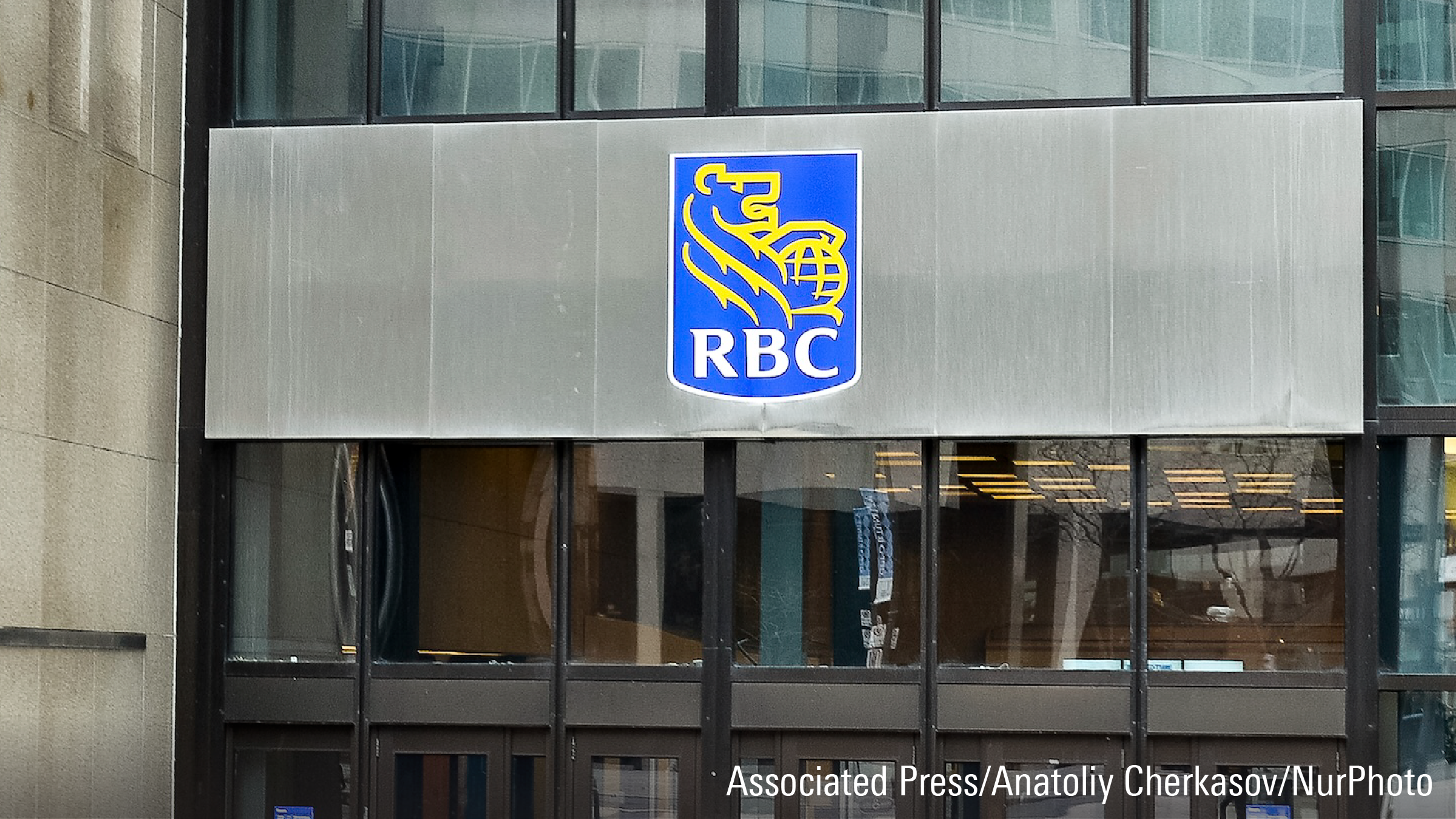
Recently, I’ve been looking at ways to combine ESG risk and traditional investing metrics like valuation and competitive advantage, including (perhaps counterintuitively) screens for stocks that bear higher environmental, social, and governance risk.
But there's an obvious method to incorporate sustainability into investing: finding companies practicing strong sustainable practices that are also solid long-term investment opportunities.
Here's what I've been looking for since September of last year: Companies with low ESG risk, with revenues that are strongly aligned to United Nations Sustainable Development Goals, and that also scored well on investment metrics. Not surprisingly, having low ESG risk and high impact isn’t necessarily a recipe for durable competitive advantage or an attractive stock.
Until now, only three companies made the cut for attractive ESG credentials and traditional investment chops. That’s a pretty paltry number, since we cover more than 1,500 companies globally at Morningstar.
But, as Warren Buffett has noted, long-term investors can wait for ideal opportunities. Admittedly, today's investing scenario isn’t perfect, but eight companies now meet our criteria. First, they need to have 50%-plus of revenue aligned to at least one of six Impact Themes tracked by Morningstar Sustainalytics.
For the screen below, we looked for companies that have:
- Morningstar Economic Moat Rating of narrow or wide
- Morningstar Rating of 4 or 5 stars
- ESG Risk Rating of Low or Negligible
- Revenue alignment to Impact Themes of approximately 50% or more.
The companies that made the list are: Grifols GRFS, GlaxoSmithKline GSK, STMicroelectronics STM, BorgWarner BWA, Frasers Centrepoint Trust J69U, Kone KNEBV, Swire Properties 01972, and Orsted ORSTED.

ESG: Buyer (and Seller) Beware
The list above includes companies across several sectors—industrials, utilities, and auto parts (BorgWarner)—that may not immediately spring to mind when thinking about sustainability. But this shows that opportunities sometimes lie in unexpected areas.
Finding positive sustainability credentials where we least expect them also reinforces the confusion that often exists in the ESG landscape. It’s often full of jargon, acronyms that will make your head spin, and conflation between matters of risk and impact.
Sometimes, it seems financial product providers can get caught up in the commotion, too. While we’ve already seen regulators in Europe and the United States crack down on misleading ESG claims, the latest example comes from a fund provider in Australia. Mercer’s Sustainable Plus superannuation retirement product (similar to an RRSP in Canada) is under investigation by the local regulator for greenwashing. The regulator claims that the group’s several Sustainable Plus investment options claimed to exclude several industries, including carbon-intensive fossil fuels, but don’t appear to have actually followed through: They have holdings in coal and gas companies.
This is a good lesson in the importance of education—both for investors and providers. For investors, it is critical to know what you’re purchasing. Not all ESG strategies are equal. Some may rely on exclusions, some on engagement, some on different ratings systems. You can’t assume that just because a fund has “ESG” or “sustainable” in its name that it will reflect your own individual ESG preferences.
But financial product providers should ensure transparency, as well. A review of Mercer’s Investment Policy document describes the exclusions of the Sustainable Plus fund deep in the document—on the ninth paragraph of Page 11. Then it makes the following caveat: “Where Mercer is invested in a collective investment scheme or fund in which its assets are pooled with others, it may not be able to dictate these exclusions.”
Being upfront, open, and clear in each product’s offering is a general best practice but perhaps even more so in the evolving ESG world.




















